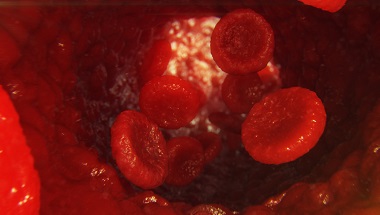In final guidance published today (20 May 2021), NICE has recommended ravulizumab (Ultomiris, Alexion Pharmaceuticals) as a treatment for paroxysmal nocturnal haemoglobinuria (PNH). Draft guidance published 19 May 2021 also recommends the treatment for atypical haemolytic uraemic syndrome (aHUS).
Currently, people with symptomatic PNH or aHUS only have one treatment option available on the NHS, eculizumab, which was also recommended by NICE and is delivered intravenously every 2 weeks.
The new guidance means that patients with either disease will now be eligible for treatment with ravulizumab, which is delivered every 8 weeks. Patient experts stated that this increase in time between treatments may improve the quality of life for people with the rare blood disorders, increasing their independence and psychological wellbeing.
Clinical trial evidence showed that, in people with PNH, treatment with ravulizumab is at least as clinically effective as eculizumab, and was found to cause fewer episodes of breakthrough haemolysis, a symptom of PNH, reducing the number of hospital admissions and the need for blood transfusions.
Indirect comparisons of ravulizumab with eculizumab for people with aHUS similarly suggest that ravulizumab is as effective for treating aHUS.
Ravulizumab is also cost saving for the NHS in both patient populations and is therefore considered an effective use of NHS resources, and is recommended for routine use on the NHS. Around 270 people with PNH and 160 people with aHUS will be eligible for the new treatment.
Meindert Boysen, deputy chief executive and director of the Centre for Health Technology Evaluation at NICE, said: “Living with a rare blood condition can be both physically and mentally challenging, especially when frequent treatment is required.
“We are pleased to be able to recommend ravulizumab for people who have paroxysmal nocturnal haemoglobinuria or atypical haemolytic uraemic syndrome.
“We are hopeful that the increased time between doses with this new treatment will lead to a better quality of life for these individuals and their loved ones.”
PNH is a rare blood disorder characterised by an excessive breakdown in red blood cells, which can lead to anaemia, kidney problems, and blood clots in the blood vessels.
Also rare, aHUS causes blood clots in small blood vessels, which can lead to organ damage and significant kidney impairment, thrombosis, heart failure and brain injury.
Both are chronic conditions which can be life-threatening when left untreated.
Blake Dark, commercial medicines director at NHS England said: “Hundreds of NHS patients will have access to ravulizumab, a potentially life-improving treatment that could give patients with rare blood disorders a greater quality of life, more independence with fewer hospital admissions and blood transfusions throughout their lifetime.
“The NHS is here for everyone, whether it’s providing COVID-19 vaccines for millions or securing access to innovative new medicines, and adopting new treatments such as ravulizumab demonstrates how the NHS can improve the lives of people suffering with rare chronic conditions and also secure the best value for the taxpayer.”
Read the final guidance on ravulizumab for PNH here, and the draft guidance on ravulizumab for aHUS here.
Update: the final guidance on ravulizumab for aHUS has now been published and can be accesed here.
